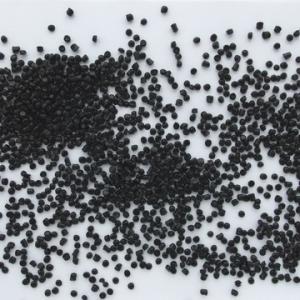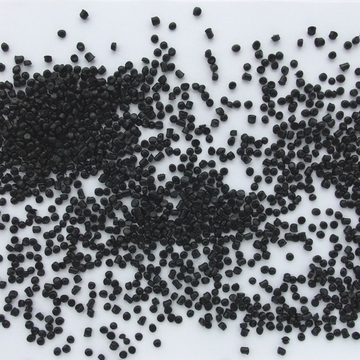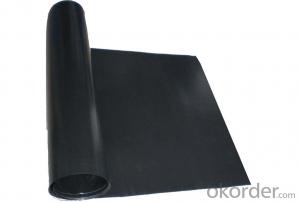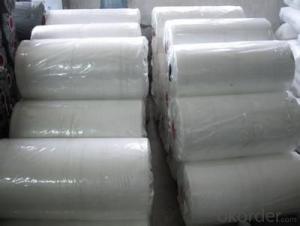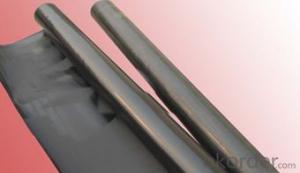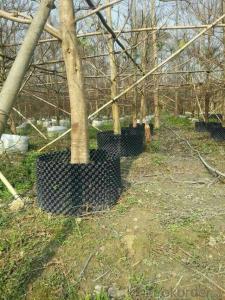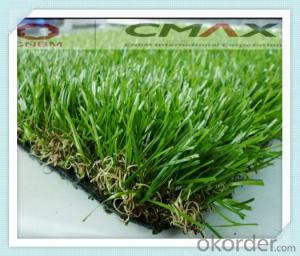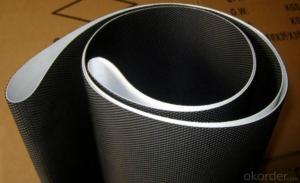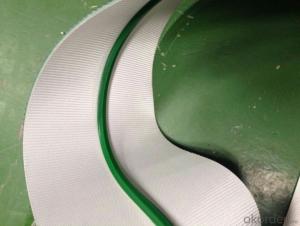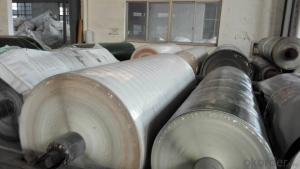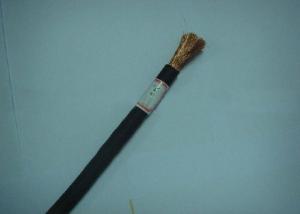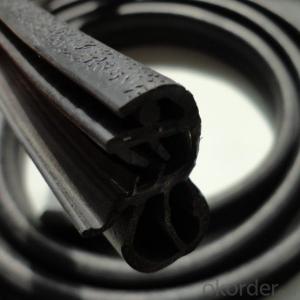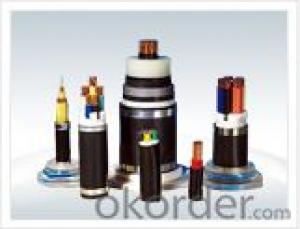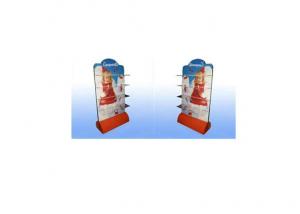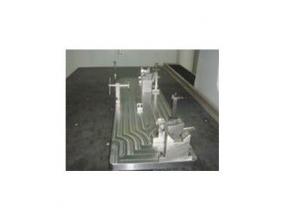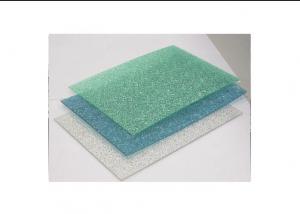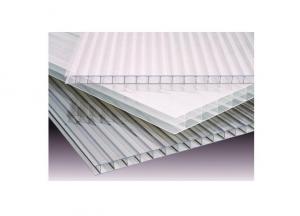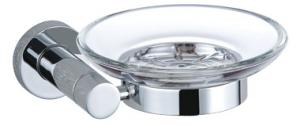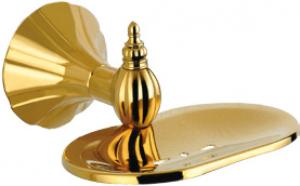EPDM Insulating rubber compound for medium voltage cable
- Loading Port:
- Shanghai
- Payment Terms:
- TT OR LC
- Min Order Qty:
- -
- Supply Capability:
- 3000 Tons kg/month
OKorder Service Pledge
OKorder Financial Service
You Might Also Like
EPDM Insulating rubber compound for medium voltage cable
I. Type and application
Type | Product | Application |
XJ-34A | 90℃ Insulation rubber compound for medium voltage cable | Insulating rubber compound for 6~30KV flexible medium voltage cable |
XJ-34B | 90℃ Insulation rubber compound for medium voltage cable | Insulating rubber compound for 6/10KV medium voltage cable |
XJ-34C | 90℃ Insulation rubber compound for medium voltage cable | Insulating rubber compound for 8.7/15KV medium voltage cable |
XJ-34D | 90℃ Insulation rubber compound for medium voltage cable | Insulating rubber compound for 10/20KV medium voltage cable |
XJ-34E | 90℃ Insulation rubber compound for medium voltage cable | Insulating rubber compound for 26/35KV medium voltage cable |
II. Product description
XJseries insulating rubber compound formedium voltage cable, based on EPDM rubber, is mixed with various additives,and is elaborated in the extra-clean conditions. Voltage grade of cable is from6kV to 30kV. The compound has outstanding performances of vulcanization, processing, physical,mechanical, aging and electrical properties. The compound is complied withQ/320585JSDT058-2003 standard.
III. Processing
Processing Equipment | Compression ratio | L/D | Processing temp. | Recommended vulcanize temp. |
Common rubber extruder | 1.1:1~1.5:1 | 15:1~20:1 | 60~110℃ | 160-200℃ |
IV. Maximum useful shelf life
12 months at 20℃, 6 months at 30℃.
V. Properties
Table
Item | XJ-34 A | XJ-34B | XJ-34C | XJ-34D | XJ-34E | |||||
Standard | Typical | Standard | Typical | Standard | Typical | Standard | Typical | Standard | Typical | |
Tensile Strength N/mm2 | ≥7.0 | 10.9 | ≥8.5 | 11.0 | ≥8.5 | 9.4 | ≥8.5 | 11.5 | ≥8.5 | 11.0 |
Elongation at Break % | ≥300 | 430 | ≥200 | 400 | ≥200 | 280 | ≥200 | 410 | ≥200 | 400 |
Oven aging | 135℃168h | 135℃168h | 135℃168h | 135℃168h | 135℃168h | |||||
Variation on Tensile Strength % | ±15 | +14 | ±30 | +11 | ±30 | +6.5 | ±30 | +10.5 | ±30 | +11 |
Variation on Elongation at Break % | ±15 | -3 | ±30 | -4 | ±30 | -7 | ±30 | -8.5 | ±30 | -7 |
Dielectric Loss Angular Tangent value | ≤0.003 | 0.0019 | ≤0.003 | 0.0026 | ≤0.003 | 0.0025 | ≤0.003 | 0.0024 | ≤0.003 | 0.0020 |
Dielectric Constant ε | ≤2.8 | 2.60 | ≤2.8 | 2.65 | ≤2.8 | 2.64 | ≤2.8 | 2.62 | ≤2.8 | 2.60 |
Dielectric Strength MV/m | ≥25 | 31.9 | ≥25 | 30 | ≥25 | 30 | ≥25 | 30 | ≥25 | 32 |
Air bomb aging test 127℃40h |
|
|
|
|
|
|
|
|
|
|
Tensile Strength N/mm2 |
| 10.0 |
|
|
|
|
|
|
|
|
Variation % | ±15 | -5 | ±30 | -5 | ±30 | -5 | ±30 | -4 | ±30 | -4 |
Elongation at Break % |
| 420 |
|
|
|
|
|
|
|
|
Variation % | ±15 | -3 | ±30 | -3 | ±30 | -2 | ±30 | 0 | ±30 | 0 |
Hot Prolongation 15min20N/cm | 250℃ | 250℃ | 250℃ | 250℃ | 250℃ | |||||
Elongation Under Load % | ≤100 | 25 | ≤175 | 50 | ≤175 | 50 | ≤175 | 50 | ≤175 | 50 |
Permanent Elongation after cooling % | ≤10 | 1 | ≤15 | 0 | ≤15 | 0 | ≤15 | 0 | ≤15 | 0 |
Volume Resistivity at20℃Ω﹒m | ≥1.0×1014 | 2.6×1014 | ≥1.0×1012 | 7.2×1013 | ≥1.0×1012 | 7.0×1013 | ≥1.0×1012 | 1.5×1014 | ≥1.0×1012 | 5.2×1014 |
Volume Resistivity at90℃Ω﹒m | 1 |
|
|
|
|
|
|
|
|
|
Elastic Modulus |
|
|
|
|
|
|
|
|
|
|
At 150% Elongation /mm2 |
|
| ≥4.5 | 6.0 | ≥4.5 | 6.1 | ≥4.5 | 6.2 | ≥4.5 | 7.2 |
At 50% Elongation N/mm2 |
|
| ≤7.5 | 5.1 | ≤7.5 | 5.0 | ≤7.5 | 5.2 | ≤7.5 | 6.1 |
Capacitance variation after water immersion 50±2℃ |
|
|
|
|
|
|
|
|
|
|
Between one day and seven days % |
|
| ≤15 | 6 | ≤15 | 5 | ≤15 | 5 | ≤15 | 5 |
Between seven days and fourteen days % |
|
| ≤5 | 1 | ≤5 | 1 | ≤5 | 1 | ≤5 | 1 |
Ozone Resistance |
|
|
|
|
|
|
|
|
|
|
Ozone Concentration 2-3.33PPM |
|
|
|
|
|
|
|
|
|
|
Surface Variation | Non cracking | Pass | Non cracking | Pass | Non cracking | Pass | Non cracking | Pass | Non cracking | Pass |
Hardness IRHD | -- | 68 | ≥80 | 80 | ≥80 | 80 | ≥80 | 80 | ≥80 | 80 |
Density | -- | 1.21 |
|
|
|
|
|
|
|
|
- Q: How do olive nets help in reducing the risk of cross-pollination?
- Olive nets help in reducing the risk of cross-pollination by physically covering the olive tree branches and preventing the movement of pollen from other olive trees. This ensures that the olive tree receives only its own pollen, resulting in more controlled pollination and reducing the chances of unwanted cross-pollination.
- Q: Can olive nets be used in both small and large-scale olive orchards?
- Yes, olive nets can be used in both small and large-scale olive orchards. Olive nets are versatile and can be adjusted to fit different orchard sizes. They are designed to protect the olives from pests and help with efficient harvesting, making them suitable for use in various orchard scales.
- Q: What is plastic made of?
- Plastic: plastic material, the so-called plastic refers to the external force of the deformation occurs, the external force can be maintained after the abolition of the state of force. The elastic modulus of plastic is between rubber and fiber, and it can deform in a certain way. Soft plastics close to rubber, hard plastics, close to fiber.
- Q: How do you know when it's the right time to install olive nets?
- The right time to install olive nets is typically determined by the maturity of the olives. It is recommended to install the nets when the olives have reached their desired ripeness and are ready for harvesting. Additionally, weather conditions and the presence of pests or birds in the orchard can also influence the decision to install olive nets.
- Q: Can olive nets be used for harvesting olives?
- Yes, olive nets can be used for harvesting olives. These nets are specifically designed to be placed under olive trees to catch the falling olives during the harvesting process. They help to collect the olives efficiently and prevent them from getting damaged.
- Q: Can olive nets be used in combination with irrigation systems?
- Yes, olive nets can be used in combination with irrigation systems. Olive nets are primarily used to cover olive trees to collect the olives during harvest. They do not interfere with the functionality of irrigation systems, as the nets can be easily lifted and placed back after watering the trees.
- Q: Can olive nets be used for olive tree temperature regulation?
- No, olive nets are not used for olive tree temperature regulation. They are primarily used to collect olives during the harvesting process and protect them from birds or other animals. Temperature regulation for olive trees is typically achieved through other methods such as proper irrigation, mulching, and providing shade during extreme heat.
- Q: Can olive nets be used in all weather conditions?
- Olive nets can generally be used in most weather conditions, as they are designed to withstand various environmental factors. However, extreme weather conditions such as heavy storms, strong winds, or freezing temperatures might affect the efficiency and durability of olive nets. It is recommended to carefully assess the weather conditions and make necessary adjustments or take additional precautions when using olive nets in challenging weather situations.
- Q: Can olive nets be used for both outdoor and greenhouse olive cultivation?
- Yes, olive nets can be used for both outdoor and greenhouse olive cultivation. Olive nets are designed to protect the olive trees and their fruits from birds and other pests. Whether in an outdoor orchard or a greenhouse, these nets can be installed to prevent damage and ensure a successful harvest.
- Q: Do olive nets affect the color of the olives?
- Yes, olive nets can affect the color of the olives. The nets are used to protect the olives from birds and other pests, but they can also reduce the exposure to sunlight. This reduced sunlight can affect the ripening process and potentially lead to a lighter color in the olives.
Send your message to us
EPDM Insulating rubber compound for medium voltage cable
- Loading Port:
- Shanghai
- Payment Terms:
- TT OR LC
- Min Order Qty:
- -
- Supply Capability:
- 3000 Tons kg/month
OKorder Service Pledge
OKorder Financial Service
Similar products
Hot products
Hot Searches
Related keywords
